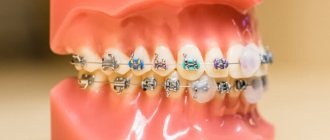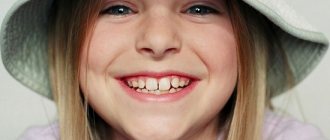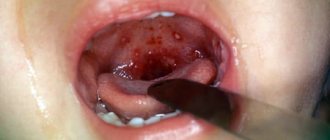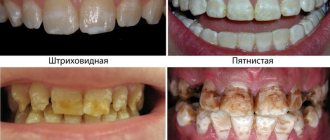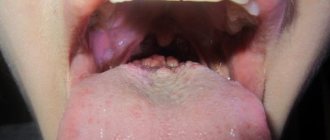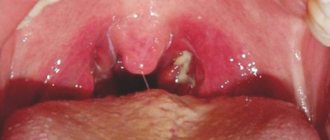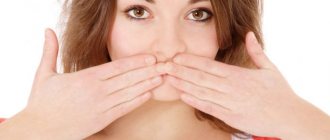Saliva is a clear liquid produced by the salivary glands in the mouth. Since the newborn's swallowing function is not yet fully established, the mother may observe her baby drooling during sleep. Saliva aids digestion and flushes bacteria and food debris out of the mouth. Drooling is normal for babies in the first two years of life, but what should you do if your baby is constantly drooling? What are the causes of excessive saliva production in older children? Let's listen to the opinion of experts.
What is the reason for such a phenomenon as drooling?
Parents notice that their babies start blowing cute bubbles in the third month of life.
It was during this period that the salivary glands had already formed. Therefore, it is not at all surprising that your child (3 months) leaves a wet mark on clothes and toys. Drool runs down the chin because the baby does not yet know how to swallow it well. A young mother may feel like there is too much moisture. Sometimes this process occurs earlier - when the child is 2 months old. Drooling is very common at this age. And this is considered a normal physiological phenomenon. It’s just that the glands of such babies formed earlier. And occasionally you can hear that even a month-old baby is drooling. Of course, this is not the norm, but each baby is individual. And if, apart from the fact that the child is drooling heavily, nothing else bothers him (his nose is breathing, drinking and eating milk as usual, etc.), then there is no need to worry about anything. Drooling is also often associated with teething, and rightly so. Of course, this is too early for three months, but as was said earlier, each body is individual. In this case, there is no reason to sound the alarm if your child is 3 months old (drooling like a stream), and his gums are already swollen, which indicates the eruption of the first tooth. In this case, the child may be naughty and eat worse. But if everything else is fine (normal stool, no fever), then there is no need to worry. When the baby is teething, you can help if you give him special rings or toys to chew on, and in case of severe pain and anxiety of the baby, you need to lubricate the gums with an anesthetic gel (Cholisal, Kalgel, Kamistad Gel, etc.)
Increased salivation in infants at 1-2 months
Recognizing the typical drool pattern will be easier if you have an understanding of the normal stages of drool development among infants. This is because the chances of drooling are much less when the baby is in a face-down position. But the baby will drool if he is in a lying or supported sitting position.
Once your baby is six months old, drooling due to positioning will almost stop. At this stage, he drools when he talks or concentrates, doing something with his hand, holding or reaching for something. When a baby is around one year old, drooling will decrease more, although he or she will drool during teething or due to eating certain foods.
- Typically, drooling begins when the baby is about three months old.
- This is because he lacks swallowing and muscle control of the mouth.
Yes, salivation plays a role in a child's development.
When do newborns drool?
Saliva is a clear liquid produced by the salivary glands in the mouth. Since the newborn's swallowing function is not yet fully established, the mother may observe her baby drooling during sleep. Drooling is normal for babies in the first two years of life, but what should you do if your baby is constantly drooling?
Another thing is with babies: they have an involuntary flow of salivary fluid, and children cannot yet control this condition. The process is very common during the teething period, so mothers and fathers should be prepared for the fact that the infant will drool everywhere: on clothes, things, toys.
When a small child drools like a river, this is normal and is considered a sign of the baby’s physical development: A baby's drooling and bubbles indicate that your baby is going through a new phase of growth.
Saliva neutralizes stomach acid and promotes the formation of the inner mucous membrane. It coats food and makes swallowing easier.
Parents, of course, are concerned when their child is drooling like a river. Why is this happening? Let's list the main reasons:.
Drooling does not require any treatment as it is a normal part of growing up.
Medical care is needed for those children who are no longer babies: they are over 4 years old, and drool is still flowing like a river, and it is not possible to keep clothes dry without a bib.
Due to the constant flow of saliva from the mouth, irritation and rash may appear on the child’s lower lip, chin, cheeks, and neck. Be sure to use a bib to prevent saliva from getting onto your baby's neck and chest. If your baby is sick, treat a runny nose in a timely manner so that the nose can breathe well and prevent saliva from collecting in the mouth during sleep.
The baby may wake up choking on excess saliva. Also monitor how your child sleeps and whether he is comfortable in the crib.
The birth of a newborn is a long-awaited, unforgettable moment in the life of every mother. Along with a new family member, anxiety takes place in the life of established parents. Somewhat later, with the introduction of complementary foods, salivary fluid will facilitate the process of swallowing solid food, wetting it and forming a bolus.
We suggest you read Internal pimple on the lip what to do
When a toddler’s chin and clothes constantly get wet, which causes inflammation and irritation and cannot but disturb the baby. To help your child, it is important to understand the reasons why your baby is constantly drooling. It will be easier for parents to develop a plan to combat the problem by clearly identifying the cause of salivation.
At 1-1.5 months, the reason for active salivation is somewhat different. At this age, babies have not fully developed their swallowing reflex. The salivary glands are overactive and the baby simply does not understand what to do with the changed amount of fluid. Using the tongue, the toddler pushes excess mucous fluid out.
At the age of 3-4 months, the baby should stop drooling profusely. If this does not happen, carefully examine the oral cavity; perhaps the baby has begun teething. When teething occurs, the gums swell and drool begins to flow with renewed vigor.
Excessive or insufficient secretion of fluid from the oral cavity often accompanies infants with defects of the jaw apparatus, congenital anomalies of the salivary glands, and hypoplasia. Such children need special attention and supervision from a doctor.
Increased salivation in a child can be a sign of a dangerous disease, which is important to quickly pay attention to and provide assistance to the baby.
Strong salivation in toddlers older than 4 months is a possible sign of the following disorders:. There is an opinion that excessive salivation is a sign of helminth parasites in the intestines.
It is worth noting that this symptom is not found in textbooks for pediatricians among the signs of worm infection.
If a 2,3 or 4 month old baby is infected with parasites, other symptoms are noted: itching in the anus due to helminthiasis, loss of weight and appetite, weight loss due to ascariasis.
Pathologies of the central nervous system, stress, and overexcitation can provoke excessive salivation. With hypersalivation, it is important to establish the source and cause of the problem. Don't forget about hygiene procedures.
Dry your child's chin with a soft cloth.
Wash your children thoroughly in the morning and evening, and after meals. Excessive drooling often occurs when the baby chews his fingers or bites his fists. Perhaps the child is just hungry or thirsty. Don't panic for no reason. If a child drools after 1.5-2 years, this is an alarming sign. Seek advice from an experienced doctor who will diagnose and prescribe the necessary treatment.
Why do babies drool: a physiological feature or a dangerous symptom Link to the main publication. Just yesterday your little one was a cute baby, but today he suddenly started blowing bubbles.
What happened, why is your mouth watering so much that you don’t have time to wipe it off? What should I do: call a doctor or is it not dangerous and will they go away on their own? With the birth of a child, a mother has new questions every day.
Before, there were no tears when I cried. Then you need to wipe your mouth, clean your ears, but it’s scary to get hurt. Now suddenly my mouth is watering, and for some reason so much... There are a lot of questions, let's consult a pediatrician. Your newborn is growing, becoming large, and reaching two to three months of age.
We suggest you familiarize yourself with Chlorhexidine for stomatitis: how to rinse for adults
At this stage of development, the salivary glands form and begin to work. Therefore, excessive drooling is normal. During this same period, the baby becomes more active. The child explores and tastes everything that surrounds him. The newborn has already drooled, but the baby still does not know how to swallow it, so streams flow down his chin.
Parents are frightened by such profuse drooling. If the saliva is clear, not foamy, not thick, not stringy, experienced mothers do not worry. Mothers know that this is a normal state for a baby at this age. Saliva is necessary for the body at any age. In the oral cavity, under the tongue, on the inside of the cheeks, behind the lower teeth, there are salivary glands.
They work constantly, producing up to two liters of fluid per day for an adult. Saliva takes care of maintaining pH in the desired state, preventing the formation of tartar and caries. Saliva destroys harmful microorganisms, thereby preventing unpleasant odor in the mouth.
Without saliva, taste buds do not work. In newborn babies, saliva performs many tasks related to digestion and protection. Protective functions of saliva in a baby's life:. In addition to protective functions, saliva performs a number of other tasks.
It plays a great role in matters of nutrition and the functioning of the gastrointestinal tract. The enzymes it contains are responsible for the initial processing of starch. And tongue lipase helps infants digest milk. It is saliva that forms the sense of taste by helping taste buds dissolve solids in food.
In the future, the gums will swell, become inflamed, the teeth will feel, saliva will soften the pain and protect the wounds from infection.
And when the teeth erupt, saliva will maintain the integrity of the tooth enamel by treating it with calcium, phosphate, and fluoride dissolved in it. Parents will have to come to terms with and go through the period of slobbering toddler.
It is unpleasant for the baby to be slobbery, so parents take special care and care for the baby at this time.
It’s not in vain, apparently, that our great-grandmothers invented bibs for babies. Bibs will help now: the fabric absorbs liquid, blouses remain dry, the skin on the neck and chest is also dry.
Pathological causes
Causes of pathological salivation in a 2-3 month old baby:
- Stomatitis is an inflammatory disease of the oral cavity, characterized by the formation of ulcers and aphthae on the mucous membrane. With the help of saliva, the body tries to neutralize the infection; it is released as a reaction to infection. Also, the amount of salivary fluid increases due to the pain experienced by the baby
- Candidiasis is a fungal infection caused by fungi of the genus Candida. A common occurrence in newborns who become infected with thrush from the mother during the birth canal or from dirty nipples and bottles. It manifests itself in the appearance of a white cheesy coating on the tongue, under which bleeding ulcers are hidden. Saliva from thrush is thick, cloudy, and smells unpleasant.
- Cerebral palsy and other disorders of the central nervous system. The child experiences partial muscle paralysis, convulsions, and impaired coordination of muscle movements. Such disorders prevent children from retaining saliva in their mouths.
- Colds, ARVI, respiratory diseases (bronchitis, pneumonia, sore throat). With these ailments, in addition to hypersalivation, the child develops a cough, runny nose, and fever.
- Diseases of the digestive system. Pathologies in the functioning of the stomach and intestines can provoke increased salivation. The saliva will smell unpleasant and have a thicker consistency.
Changes in the amount and composition of saliva can occur due to stressful situations and nervous tension. Only a doctor can find out the reason that caused hypersalivation. First of all, it is necessary to take the baby to a pediatrician, and he will refer you to other specialists, if necessary: an endocrinologist, neurologist, dentist or gastroenterologist.
Physiological causes of increased salivation
Saliva is produced immediately when a baby is born, but at 2–3 months the baby bubbles the most profusely. This is a normal process, it is necessary for the full development of the child. Reasons why newborns experience increased salivation:
- Unformed swallowing reflex. Despite the fact that the baby has already been born, many body functions are just beginning to develop. Swallowing is difficult in two-month-old babies, which is why excess saliva forms in the mouth, because it helps food slip inside into the esophagus. At two or three months, the baby also has not yet learned to swallow drool; there is too much of it, and the process happens constantly, so he blows bubbles and streams of salivary fluid flow down his chin.
- Protective barrier. After birth, the baby finds himself in a new, unknown world. He wants to know everything, try everything, and one of the ways to learn is to put an object in his mouth. The child puts toys, a blanket, and his own fingers and toes into his mouth. The immune system is not yet fully formed, so it will not be able to fight back all microorganisms that enter the body through the mouth. To protect your baby, you need as much saliva as possible, which can neutralize bacteria from a dirty toy.
- Teething. The first teeth begin to appear at 3–4 months. This process is accompanied by pain, itching in the gums, the baby’s temperature rises, he becomes lethargic and moody. Saliva has a disinfecting and calming effect. Profuse salivation helps the baby cope with such a painful process.
The peak of intense salivary fluid secretion occurs at 3–5 months. By six months, the swallowing reflex is almost formed. At what age does drooling stop flowing? By the age of 1 year, saliva production is normalized, the baby can already control swallowing, and liquid does not flow down the chin.
Functions of saliva
This transparent viscous liquid in the child’s mouth performs a number of important functions:
- contains food enzymes;
- performs protective properties, providing a bactericidal effect;
- removes excretory products (toxins, waste);
- moisturizes the oral cavity;
- helps with breastfeeding;
- eliminates gum inflammation during teething.
Somewhat later, with the introduction of complementary foods, salivary fluid will facilitate the process of swallowing solid food, wetting it and forming a bolus. In addition, saliva is involved in articulation.
Moderate drooling is a normal physiological process, but excessive fluid secretion at the appropriate age (hypersalivation) is a reason to visit a doctor. When a toddler’s chin and clothes constantly get wet, which causes inflammation and irritation and cannot but disturb the baby.
To help your child, it is important to understand the reasons why your baby is constantly drooling. It will be easier for parents to develop a plan to combat the problem by clearly identifying the cause of salivation.
Source: https://imdent.ru/slyuna-novorozhdennogo-i-grudnogo-rebenka-vypolnyaet-funktsiyu/
What is saliva for?
Young parents often think about this when they take off another blouse from their child. It turns out that saliva is more important for infants than for adults.
Firstly, it helps digestion, as it contains enzymes, which promotes better breakdown and absorption of food. Saliva also softens and liquefies food, promotes the formation of a food bolus, which is especially important when the baby begins to try harder foods.
Secondly, saliva performs a protective function. It moisturizes the oral mucosa, protecting it from drying out and cracking, and also has bactericidal properties (thanks to the substances it contains - lysozyme, lactoferrin, mucin, etc.) These characteristics are especially important, because we all know how babies love to pull everything in your mouth.
Thirdly, saliva plays a buffering role because it can neutralize alkaline and acidic compounds in the oral cavity. It also has a mineralizing effect. Saliva contains compounds of fluorine, phosphorus, and calcium, which saturate tooth enamel with microelements. But these functions will be important during the period when the child already has teeth.
Why does a newborn drool?
Excessive saliva production is a completely natural phenomenon in babies. It is not a symptom of disease or developmental abnormalities, but accompanies the processes of maturation of the salivary glands or teething.
When a baby is born, he practically does not need saliva: the food he eats in infancy has a liquid consistency and does not require grinding.
As development progresses, around the end of the first month of life, saliva production increases. In this way, the salivary glands mature, form and prepare to work at full capacity to ensure normal digestion of food. It is at this time that saliva begins to flow more than usual. This is due not so much to its large quantity as to the inability to swallow it, since the child cannot yet control the movements of the tongue, cheeks and throat to the required extent. Therefore, saliva pours out of the mouth, and the baby begins to play with it, making bubbles.
Later, when the baby is more or less able to swallow saliva, a new stage of development begins: teething. The gums loosen, all this is accompanied by pain, and hyperproduction of saliva begins again. The same thing happens during the start of complementary feeding. Saliva helps with swallowing food and getting used to new foods that have a consistency that is still unfamiliar to the child.
How to care for a child with increased salivation?
If your baby is 3 months old (drooling profusely), then you need to change clothes as needed. You can use baby bibs, then there will be no need for continuous changes of clothes. It is also necessary, as necessary, to wipe the child’s face with sterile gauze or a soft (this is important, because the child has very delicate skin) ironed handkerchief. In this case, pay special attention to regular hand washing. Pouring boiling water over the baby’s toys and rings, which he constantly puts in his mouth, is the direct responsibility of the parents.
All these measures are aimed at ensuring that the baby does not have a rash, does not form “jams” (cracks in the corners of the mouth that can become inflamed) and maceration (this is when, under the influence of saliva, the skin on the child’s face is irritated and areas of inflammation form).
If, nevertheless, you notice macerations or “jams,” then in folk medicine it is recommended to lubricate them with olive, sea buckthorn, and linseed oil. You can wipe it several times a day with herbal decoctions: calendula, chamomile, sage. And after the procedure, it is necessary to blot the child’s face and mouth with a handkerchief. Among pharmaceutical preparations, pediatricians recommend Bepanten. You can also lubricate with baby cream.
But now there are so many kids prone to allergies that, if possible, it is better to consult a specialist.
What to do if your baby is drooling?
A baby who drools too much may develop a chin rash due to constant humidity and the influence of digestive enzymes contained in saliva. You should protect your delicate skin by lubricating it with olive oil or cream, especially when you go for a walk. Keep soft wipes handy and wipe your child's face. Put your baby on a bib and change it often.
If the skin is still inflamed, you need to show the child to a doctor. Perhaps an infection has occurred, and this requires prompt treatment.
Other causes of increased drooling in infants
One of the reasons is when stomatitis (inflammation of the mucous membrane) develops in the oral cavity. With this disease, ulcers or white plaque are visible on the tongue, gums, and palate. There may be a high body temperature. Ulcers with stomatitis are very painful. Therefore, the child often refuses to breastfeed.
Another reason may be the onset of the disease, which occurs at the time when the child is 2 months old (drooling profusely). This may be a common acute respiratory infection. Then the baby’s nose is stuffy, he sneezes, and is restless. The temperature may also be elevated, and the baby refuses to eat or drink.
The child drools profusely even with helminthic infestation. Therefore, it is very important to observe the rules of personal hygiene. Increased salivation is usually observed at night. As a rule, marks remain on the pillow.
Also in infants, excessive salivation can be observed in diseases of the digestive system (enterocolitis, gastritis, hepatitis) and in some neurological and mental diseases (for example, cerebral palsy, autism).
To summarize: when should you see a doctor?
A trip to the pediatrician is inevitable if, in addition to increased salivation, the child has the following symptoms: high fever, unpleasant odor from the mouth, hyperemic (reddened) and swollen gums, rashes, white plaque, wounds or pustules in the oral cavity. Parents should also sound the alarm when their baby has severe diarrhea (diarrhea); if it is difficult to breathe through the nose, and the mouth is open almost all the time; if saliva flows more abundantly at night; if “jams” have formed in the corners of the mouth and began to fester.
It's better to consult
It is recommended to go to the clinic if the child is teething, and in this place the gums are moderately hyperemic and swollen;
Subfebrile (37-37.5) temperature lasts for 2-3 days; mild diarrhea for several days; if “jams” in the corners of the mouth do not heal for a long time. This article will help young parents determine what physiological processes are normal when their child is 3 months old. Are you drooling and have no other symptoms to worry about? So everything is fine. Stock up on napkins and bibs. But if you have noted other causes of salivation listed in the article, try to get an appointment with a doctor. An experienced pediatrician will examine the child, advise the parents and, possibly, prescribe the correct treatment. After all, you shouldn’t self-medicate, even when it comes to the health of an adult. And our children are too dear to us, so at the first suspicion of any disease (and even just if there are any doubts), you must immediately contact a specialist.
How to help your child
It is worth noting that not all babies are prone to hypersalivation. However, if the baby is in his third month and drooling is flowing like a river, this is not a reason to worry at all. It is important for a young mother to try to help the little one cope with the difficulties that have arisen. In this case, simple devices will come to the rescue:
- bibs. Use two-layer options with a waterproof lining and a natural top layer;
- pacifiers will help you cope with swallowing liquids;
- special refrigerated teethers, which can be purchased at the pharmacy;
- baby creams and lotions will help cope with irritation and moisturize the skin;
- laying on the tummy. This improves peristalsis, strengthens the spine and muscles, and helps in salivation;
- If parents are sure that the cause of hypersalivation is teething, it is worth purchasing a special gel that will reduce the symptoms and make the process less painful.
Don't forget about hygiene procedures. Dry your child's chin with a soft cloth. Wash your children thoroughly in the morning and evening, and after meals.
Excessive drooling often occurs when the baby chews his fingers or bites his fists. Perhaps the child is just hungry or thirsty. Don't panic for no reason.
If a child drools after 1.5–2 years, this is an alarming sign. Seek advice from an experienced doctor who will diagnose and prescribe the necessary treatment.
Drooling in infants is a physiological and temporary phenomenon. When the child grows up, teeth erupt and the baby learns to control swallowing, hypersalivation will no longer bother him. Until this moment, mothers and fathers can only be patient and, as far as possible, make the “wet period” easier for the child.
We invite you to familiarize yourself with Cholisal instructions for use: indications, contraindications, side effects - description of Cholisal Dental gel (1929) - a directory of drugs and medicines
The child is drooling - a similar picture is familiar to all mothers, without exception. The thing is that up to 8 months the baby simply does not know how to swallow saliva, so he has to wipe it away. After carefully observing your child, you will probably notice that excessive drooling is not a constant phenomenon, but a periodic one.

